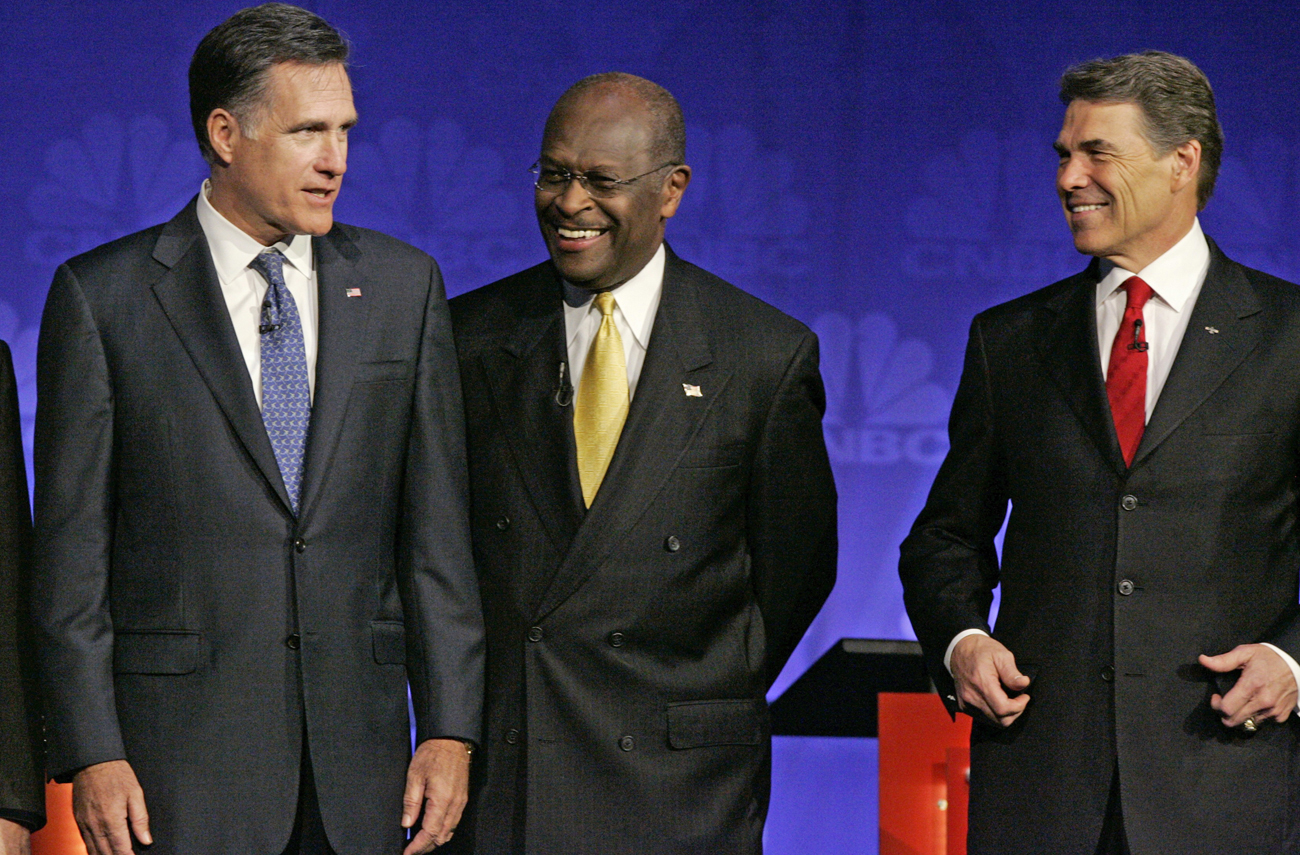This writer is back in America for the first time in two years, mostly on family business rather than work or pleasure, but it is impossible to avoid watching what is taking place all around one. Leaving Washington, DC's Dulles Airport bound for Orlando, Florida, in the midst of the school and work years, but just ahead of the 11 November Veteran's Day holiday, the airplane is overbooked. A harassed boarding gate crew is trying to solicit a half dozen people to postpone by just one day their vacations to the beach and to Disney's Magic Kingdom, Universal Studios and Sea World – in exchange for a free hotel room and four hundred dollars cash. No takers – the holiday is too urgent, and the children are too insistent. The plane is full, the passengers are virtually singing the Disney jingles – those mind memes that can't be fended off.
Central Florida can be a strange place. Orlando is cornucopia of advertising insisting you have to visit Mickey and Minnie but as one's vision clarifies, as a drive through suburban neighbourhoods soon reveals all the doctors' offices dealing with the afflictions of aging – bone diseases, joint problems, oncology, gerontological issues. And there are also the wounds of the subprime mortgage crisis. The foreclosed houses with their starting-to-peel paint and overgrown front yards (one can see them easily as there are few South Africa-style perimeter walls here) are like a bad tooth in the middle of a smile. The shopping malls are festooned with Christmas decorations – and it is still a couple of weeks before the holiday of Thanksgiving Day, what used to be the "official" beginning of the Christmas season – but shoppers are conspicuous by their absence. The merchants must be worried about a lackluster shopping season – the sale signs and two-for-one offers are already posted.
In a coffee shop in one of the countless strip malls that dot the neighbourhoods, at a table's worth of retired men, now living in Florida after lifetimes of steady work, outrage over waste, fraud and mismanagement is a palpable presence at the table – but this isn't the anger of the Tea Party. Rather, it is resentment over the fecklessness of their government's inability to control the big banks that won't rein in their mortgage bond foreclosure machinery, the extraordinary remuneration of top managers of major corporations that send jobs abroad and the hollowing out of those civic institutions that used to underpin the middle class. The cost of maintaining the dignity of the final months of a family member who needs medical care for a last illness – even with the national government's Medicare health programme – is very different than the Tea Party's desire to slash and burn the way through federal government programmes. The men around this table are the kind of people who lived by the rules – they're angry that the rules that governed their behaviour no longer restrains that of others.
Of course greybeards and elders have complained about the next generation since Seneca's time; but there is something else here. This anger is drawing upon an intuitive understanding about the country that has just been borne out in grim detail with new statistical data – widely reported on television news, in newspapers, magazines and on the web – that the rich are getting richer, the poor, poorer and the middle class just plain vanishing. Attitude surveys report more and more people expect the economic futures of their children – and their grandchildren – will be less pleasant than theirs was. That American dream of second chances and new worlds to conquer – poof, up in smoke.
Someone tells this writer about a child whose new job – mind you, one with less pay and fewer benefits than the job they had before, but still a job, however – involves traveling the length of Florida to retrofit bank branches overnight with new teller cages, online interfaces and more security features so that when the branch opens in the morning, it has a new face and extra protection against the anger of customers. Maybe the banks are girding for consumer "direct action" over all the banks' unwillingness to make loans and forestall foreclosures even as they add all kinds of new fees and costs for services? (There is the sudden daydream of Florida's oldsters joining forces with the Occupy Wall Street movement to teach the banks a lesson that swims into view after hearing about this work.)
But wherever one goes, there are television monitors giving the observer the 24/7 all news channels that roll out a instant commentary and breaking news. Throughout the day, two American sex scandals and the European banking and financial crisis remain in one's face everpresent.
The one scandal is Republican presidential nomination candidate Herman Cain's continuing entanglement with a growing string of accusers who speak of alleged sexual harassment episodes by him, dating from when he headed the National Restaurant Association a decade ago. At first there are two nameless, faceless women bound by the confidentiality agreements that came with their settlements with the association, then a third woman who never reported her experiences with Cain to the authorities but still has now made a claim. And then finally, a fourth woman, Sharon Bialek, steps out of the shadows to provide some fairly graphic details about Cain's sexual advances when she had asked him for employment advice. In her – inevitably – televised press conference, Bialek was accompanied by her attorney, a lawyer who has a high-visibility reputation in the sexual harassment business. So far at least, Bialek's charges have not fatally crashed Cain's Republican activist support base, but it has forced him to spend precious time deflecting these charges and insisting he is innocent of any – and everything, rather than expanding his case for the nomination, beyond his cartoon version of a tax plan – that incessantly repeated 999 plan – 9% personal, corporate and sales tax levels.
Then in a Republican candidates debate that took place Wednesday evening at a university campus in suburban Detroit and was televised on one of the cable channels, Cain smiles and grimaces whenever he has a moment, and then tries to steer every question into being a launching pad for a further iteration of his tax plan. Five other would-be candidates – Rick Santorum, Newt Gingrich, Michele Bachmann, Jon Huntsman and Ron Paul – try to get a little oxygen from the debate; and Mitt Romney works hard so as not to smudge his role as the putative front-runner, even if he hasn't yet been able to break beyond 25% or so of Republican activist voter supporters.
However, the whole debate is a lot like watching one of those circus acts where the clowns keep coming out of the Volkswagen, tumbling over each other and running in furious circles. They are all against government spending, think Barack Obama is a fool at best and want a strong nation internationally – except for a bit of an outlier like Ron Paul who seems to want the kill off the Federal Reserve Bank and bring all the troops home as his favoured route to national redemption. Oh, and all the candidates want to end the student loan programmes that help pay for university educations as a way to improve the national educational effort.
But, ultimately, this show ends up being about Rick Perry – in the worst way possible for a candidate during a nationally televised event. Asked which government agencies he would zap the day after he becomes president (abolishing government agencies now seems to be the new measuring stick for true, dyed in the wool, red meat Republicans who have drunk the Tea Party's Kool Aid), Perry is on a roll in naming the education and commerce departments for whatever reason – but with little or no explanation as to why he has picked these, except that he doesn't like them. And then, inexplicably, astoundingly, amazingly, Perry cannot name a third government department (no, not the Bureau of Mines, not the Coast and Geodetic or Cadastral Survey offices, not the Army Corps of Engineers, not even the Migratory Bird Commission?) to dismember and defenestrate. Viewers in the auditorium and across the country see him straining mightily, desperately for that elusive third executive department. Ron Paul helpfully whispers to him: "Environmental Protection Agency?" but that's not what Perry presumably has in mind.
Fifty-three seconds tick by – a televised eternity – and then Perry finally says, "Oops." By the following morning, this "oops" is the lead story on the television news – outpacing Italy's imminent debt default and a Turkish earthquake. The commentators have now called this the "Texas Train Wreck" and the "Detroit Debacle". In less than 24 hours, it is enshrined as the single most horrific, but defining, moment in televised presidential debate history. It is now way, way ahead of Lloyd Bensten's famous put down of "I knew Jack Kennedy and you are no Jack Kennedy" – or Richard Nixon's sweaty forehead and shadowy grey suit. On the electronic crawler at the bottom of the TV screen, in real time, just like a disastrous stock ticker, the Intrade percentage for Rick Perry (Intrade is the political futures market on the internet) drops to 8%, then 4% in just two minutes. Perry is T-O-A-S-T. Or as Perry himself says the following morning in yet more television footage, "It's a good thing I was wearing boots because I sure stepped in it." Yessiree Bob, you sho nuf did.
But perhaps the biggest, baddest news event so far is something ostensibly removed from the political universe, even as it is much closer to the heart of things for most Americans. College football. In the past few days, in an astonishing sequence of events, evolving from a homosexual child-molesting scandal that dates from a decade ago, has been spinning out of control at Pennsylvania State University. At that university, a former assistant football coach, Jerry Sandusky, has been indicted for abusing pre-teen boys participating in an at-risk children's programme the coach founded that had used the university's sports facilities while Sandusky was employed by the university – and then afterwards as well.
Only a week out in the open, this scandal has already led to the abrupt dismissal of the university president and much of the senior athletic department staff – and now even the school's legendary head football coach, Joe Paterno. Paterno, at the age of 84, has won more football games in his career than any university head coach in American history. Millions of football fans across the US virtually live and die for the team's success and his program has sent dozens of university athletes onto the professional level. His team's games routinely attract over 60,000 paying fans per game and, at least for Americans, Paterno's place in the sports pantheon is the equivalent of someone like Alex Ferguson for soccer football fans across the rest of the world.
Now, no one says Paterno himself has been guilty of the actual crime, but he has been fatally tarred by his personal, professional and moral flaw of not reporting the abuse to the police; choosing rather to send his suspicions up the administrative chain of command, rather than demonstrating Zeus-like anger and wreaking havoc upon the malefactor with divine thunderbolts. But, when news spread of Paterno's dismissal, just days before a very big game against a major rival university, thousands of students had gathered to riot in the streets of the town of University Park where the university is located, overturning and then wrecking a television broadcast van, tearing down street lamps and finally being fought to a standstill by riot police who had to fire tear and pepper gas at them to get them to disperse.
Maybe all this says something about the contemporary American psyche – perhaps Americans just no longer expect their politicians to behave properly, let alone coherently. Perhaps they just shrug their shoulders and say "Oh well, so it goes," when a politician is caught in the act of straying far – or is accused of doing so by repeated claimants. In that sense, perhaps, Americans have now joined with the British, the Japanese, the French – and the South Africans – in expecting very little from their politicians any more.
But sports figures are still thought to be above smudged morality, despite all the revelations to the contrary that have piled up over the past decade from the bad boy behavior of some of the country's sports stars. Coaches, however, are supposed to be immune from such strayings: earlier legends like Notre Dame's Knut Rockne (or Penn State's Joe Paterno, now) are supposed to inspire and to guide, rather than mysteriously transmutate into rudderless apparatchiks at the first whiff of real trouble. But, somehow, it seems odd that the students rioted over Paterno's dismissal for his moral funk, rather than the tawdry behavior of his former assistant coach, Jerry Sandusky.
But we return to that group of old men at the coffee shop. In much of their demeanour they still seem to embody an older American values set. One of them, a retired engineer, now teaches math and statistics at a local community college; others are organisers or officers at local museum support group, with friends of the local public library or work on behalf of community public art projects. At least in part, the values first identified by that astute French sojourner in America, Alexis de Tocqueville, back in the 1830s – the virtues of free association and civic participation described in "Democracy in America" – are not wholly dead, even if the level of cynicism about the larger institutions of the country is visible for all to see and hear.
Perhaps if politicians and sports figures spent a bit more time hearing these more subtle sounds, and pandered less to the call of the crowds in the stadiums or eschewed the use of dog-whistle political catch phrases to please the crowds, the country would have better chances to recover from the body blows it has been receiving for much of the past decade. DM
Photo: REUTERS






